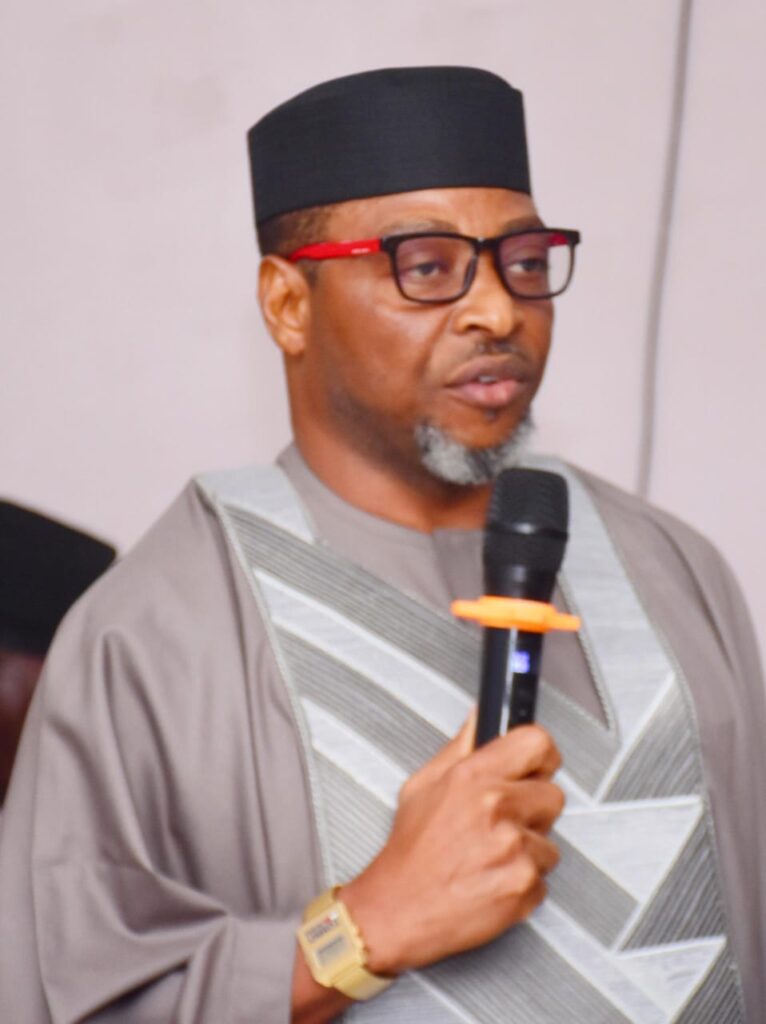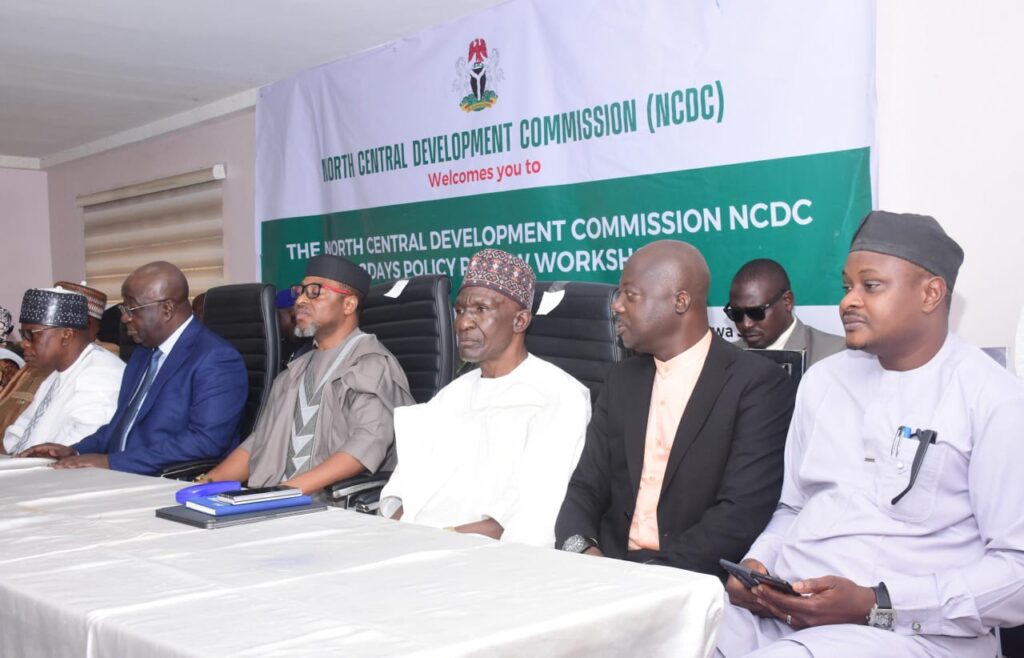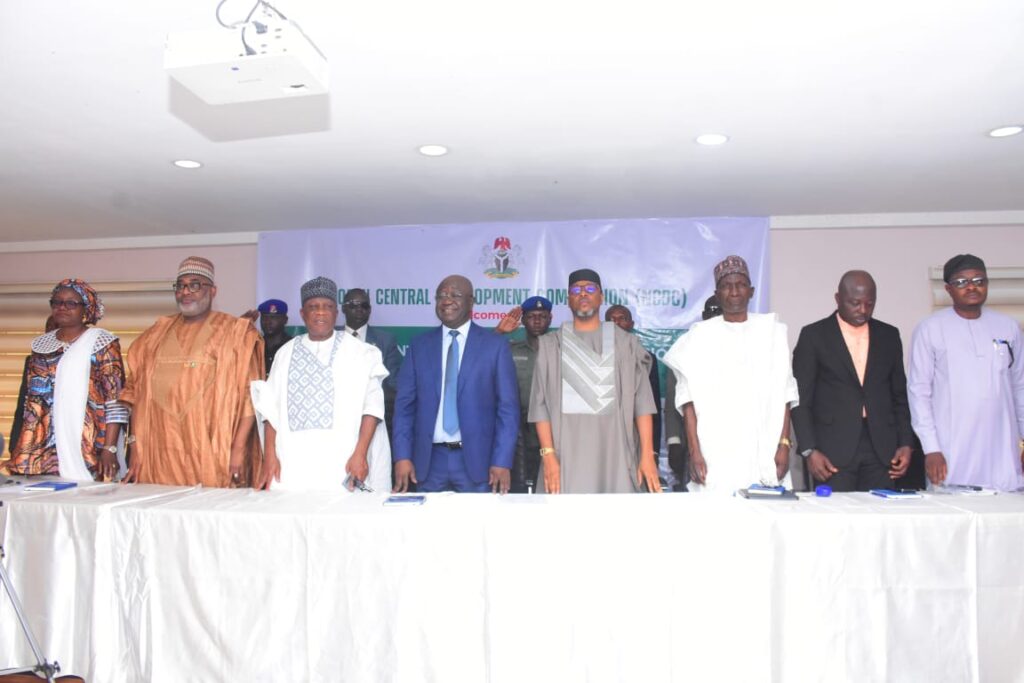We Will Ensure Equitable Distribution of Projects, Interventions — NCDC Chairman.
By Raymond Enoch
The Chairman of the North Central Development Commission (NCDC), Barr. Cosmos Akighir, has assured that the Commission will ensure the equitable distribution of projects and interventions across all states in the region.

He gave this assurance on Tuesday in Lafia during a two-day Policy Review Workshop organised to validate the Commission’s draft Development Roadmap.
According to Akighir, the roadmap aims to promote regional integration, modernise agriculture, expand infrastructure, and address poverty and social inequality across the North Central zone.

“In line with the Federal Government’s Renewed Hope Agenda, the NCDC is committed to harnessing the strengths of our region to drive balanced growth and ensure development reaches every community,” he said.
He emphasised that the Commission’s focus would include improving healthcare, expanding social services, and enhancing access to social amenities through public-private partnerships.
“We are looking at consolidation and renewal — fostering regional integration, strengthening institutions, and sustaining the regional environment.

“Citizens exposed to poverty are more vulnerable than those facing other forms of insecurity. Our roadmap seeks to lift the North Central region out of poverty and stimulate growth across communities,” Akighir added.
Earlier, the Minister of Regional Development, Engr. Abubakar Momoh, tasked the Commission with ensuring that all projects align with President Bola Tinubu’s Renewed Hope Agenda.
Describing the roadmap as a “bold statement of intent,” Momoh said it represents a vision for sustainable growth, shared prosperity, and inclusive national development.
“For the North Central region, this is a moment of renewal. The region is rich in agricultural potential, solid minerals, and resilient people,” he said. “However, challenges such as insecurity, infrastructural deficits, and youth unemployment must be addressed through collaboration and effective planning.”
He urged the Commission to collaborate with state governments, the private sector, and development partners, stressing that fairness, justice, and inclusivity must guide all interventions.
Momoh also warned against the concentration of projects in certain areas, reminding the Commission that its resources are meant to benefit the entire region.
“The funds allocated to the North Central Development Commission are for the entire region. Every community must be carried along,” he said.
He further advised the Commission to prioritise the effective implementation of its roadmap, ensuring that it clearly outlines strategies, funding sources, and measurable outcomes.
“A roadmap should go beyond rhetoric. It must clearly state what needs to be done, how much it will cost, and where the funding will come from,” he added.
The minister commended the Commission’s leadership for holding two board meetings since its inauguration and highlighted the importance of teamwork and board oversight in driving its mandate.
Declaring the workshop open, Governor Abdullahi Sule of Nasarawa State, represented by his deputy, Dr. Emmanuel Akabe, praised the Commission for its proactive steps toward project implementation in the region.
He noted that the NCDC was established to address infrastructural deficits and development challenges in the North Central zone through targeted interventions in agriculture, health, the environment, and security.
“As a region, the North Central is Nigeria’s agricultural hub, blessed with arable land and vast mineral resources. Properly harnessed, these endowments can transform our economy,” he said.
Governor Sule pledged the continued support and cooperation of the Nasarawa State Government to enable the Commission to fulfil its mandate.
Also speaking, Dr. Cyril Tsenyil, Managing Director of the NCDC, described the retreat as a major milestone in laying a strong institutional foundation and operational framework ahead of the Commission’s full take-off.
Tsenyil noted that the workshop, supported by SPRING, provided an opportunity to review and finalise the Commission’s draft policy roadmap while generating actionable strategies for inclusive and sustainable development.
He disclosed that since the board’s inauguration in August 2025, the Commission has convened two board meetings, established 13 committees, and submitted its 2025 budget proposal to the National Assembly.
“We are committed to laying a solid foundation through strategic partnerships, stakeholder engagement, and inclusive planning,” Tsenyil said.
The two-day workshop is expected to yield a comprehensive and actionable development roadmap as well as a communiqué detailing key resolutions for implementation.








